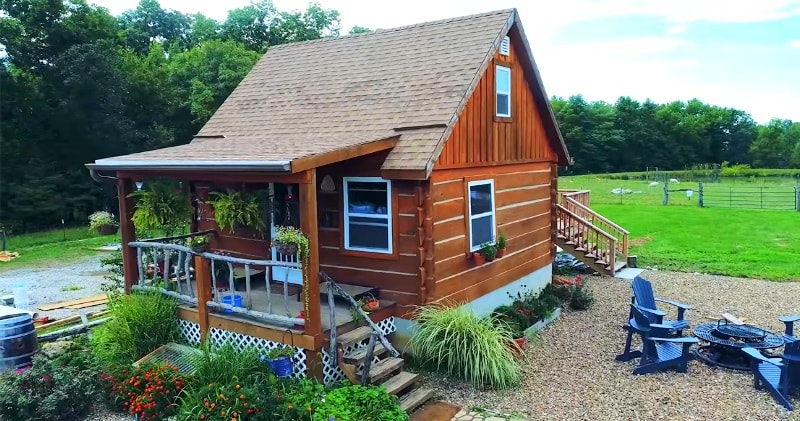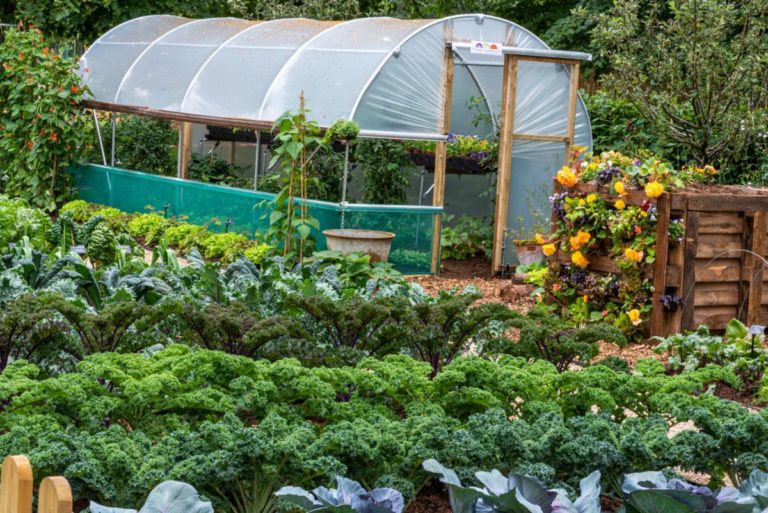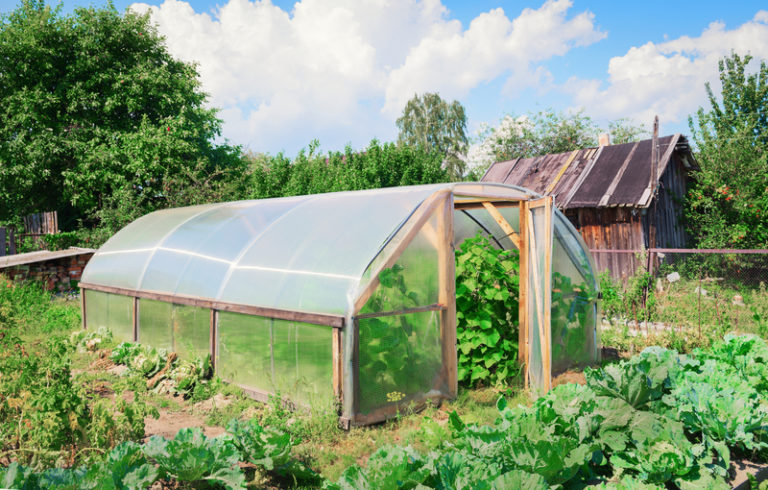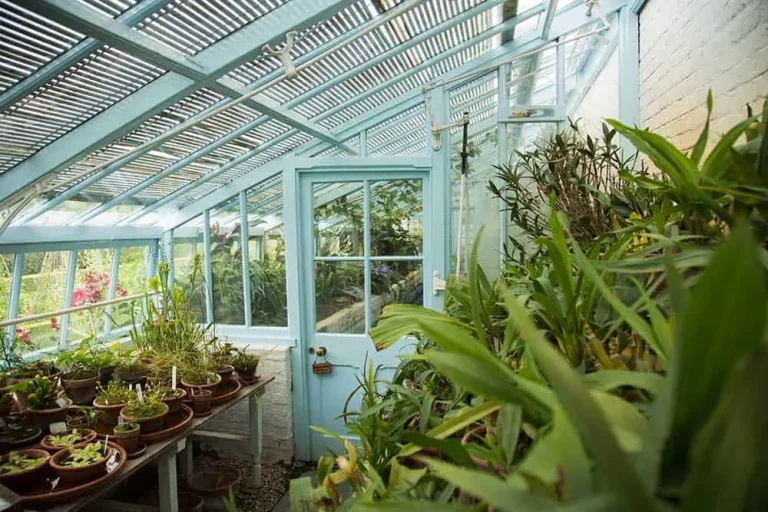Living off the grid and adopting a self-sufficient lifestyle can be an enchanting and empowering experience.
As an off-grid homesteader, my day is filled with activities that nurture my independence, connection to nature, and community.
From tending to our organic garden and harvesting fresh eggs from our backyard chickens, to using renewable energy sources and crafting our own natural beauty products, every moment of my day is an opportunity to deepen my understanding of the interconnectedness of life and to live more authentically.
We’ll delve into a typical day in my off-grid homesteader lifestyle, exploring the unique challenges and rewards of living unconventionally and embracing the beauty of self-sufficiency.
Early morning chores
Off-grid homesteaders typically wake up early to start their day with chores such as milking cows, gathering eggs from the chicken coop, and tending to the garden.
One of the first tasks of the day is milking cows, which provides fresh dairy products for consumption or sale.
Next, you’ll head to the chicken coop to gather eggs, which are a vital source of protein and can be sold or traded with other local homesteaders.
After collecting the eggs, you’ll then move on to tending to the garden, which is the lifeblood of any off-grid homestead.
This involves checking on the crops, watering, and weeding to ensure they are healthy and thriving.
These early morning chores set the tone for a productive day of managing your off-grid homestead, and the sense of accomplishment and fulfillment they provide is unparalleled.
Solar power
Many off-grid homesteaders rely on solar power to generate electricity for their homes. This means that they may need to monitor their energy usage and plan their day around the available power.
Living off the grid and relying on solar power for energy can be a rewarding and self-sufficient lifestyle, but it also requires careful planning and management.
One of the key challenges of off-grid homesteading is ensuring a consistent supply of electricity, especially during periods of limited sunlight or seasonal changes.
To overcome this, many off-grid homesteaders invest in battery storage systems, which allow them to store excess energy generated during the day for use at night or on cloudy days.
However, this requires careful monitoring of energy usage and planning of daily activities around the available power.
For example, if you have a large battery storage system, you may be able to run your lights and appliances for several hours during the evening, but if you have a smaller system, you may need to limit your energy usage to only the most essential needs, such as lighting and cooking.
Off-grid homesteaders may need to consider alternative sources of energy, such as wind power or hydroelectricity, to supplement their solar power and ensure a reliable supply of electricity.
Overall, living off the grid and relying on solar power requires a conscious effort to be mindful of energy usage and plan accordingly, but it can also be a rewarding and sustainable way of life.
Water collection
Off-grid homesteaders must collect and store their own water, which can involve hauling water from a nearby well or stream, or collecting rainwater. This task is often a part of the morning routine.
Water collection is a important aspect of life on an off-grid homestead.
Without access to a municipal water supply, homesteaders must rely on natural sources of water such as wells, streams, or rainwater collection.
Hauling water from a nearby well or stream can be a laborious task, requiring the use of heavy-duty containers and strength to carry the water from the source to the homestead.
However, this task is often a part of the morning routine, as it is important to collect water early in the day to ensure a steady supply throughout the day.
In addition to hauling water, off-grid homesteaders may also collect rainwater for their water needs.
This involves installing a rainwater collection system, which can be as simple as a small tank or as complex as a full-scale rainwater harvesting system.
Collecting rainwater is a sustainable and eco-friendly way to irrigate crops, wash clothes, and flush toilets, and can be an important component of an off-grid homestead’s water collection strategy.
Overall, water collection is an essential aspect of life on an off-grid homestead, and requires careful planning, execution, and maintenance to ensure a reliable supply of clean water for all the homestead’s needs.
Gardening and food preservation
Off-grid homesteaders often grow a significant portion of their own food, and they may also preserve food through canning, dehydrating, or smoking. This work may be done in the morning or throughout the day, depending on the season and the needs of the farm.
Gardening and food preservation are essential aspects of off-grid homesteading.
Many homesteaders cultivate a significant portion of their own food, relying on traditional farming techniques such as hand-digging and composting to maintain soil health and fertility.
These practices promote sustainability and self-sufficiency, ensuring that the homestead is less reliant on external resources.
Food preservation is equally important, as it allows homesteaders to enjoy their harvest throughout the year.
Canning, dehydrating, and smoking are popular methods used to preserve fruits, vegetables, and meats.
Canning involves cooking food in a sterilized jar, sealing it, and then heating it to kill off any bacteria or microorganisms.
Dehydrating involves removing the moisture from food, which helps preserve it for longer periods.
Smoking, on the other hand, involves exposing food to smoke, which helps preserve it and gives it a unique flavor.
These preservation methods are done in the morning or throughout the day, depending on the season and the needs of the farm.
For instance, during the summer months, homesteaders may focus on harvesting and canning vegetables, while during the winter months, they may focus on preserving meats through smoking.
The specific activities and techniques used will vary depending on the homestead’s location, climate, and resources.
Animal care
Off-grid homesteaders may have a variety of animals, including cows, goats, sheep, chickens, and pigs. Caring for these animals involves tasks such as feeding, milking, and cleaning out their living spaces.
Caring for animals on an off-grid homestead is an essential part of sustainable living.
Off-grid homesteaders may have a variety of animals, including cows, goats, sheep, chickens, and pigs, each of which requires specialized care and attention.
For example, cows require regular milking and cleaning of their living spaces, while goats and sheep need to be fed a balanced diet and have their living spaces cleaned and maintained.
Chickens require regular feeding and watering, as well as cleaning out of their coops to prevent the spread of disease.
Pigs, on the other hand, need regular cleaning of their living spaces and adequate ventilation to prevent the buildup of ammonia and other harmful gases.
In addition to these basic care requirements, off-grid homesteaders may also need to monitor the health of their animals and address any medical issues that arise, such as infections or injuries.
By providing proper animal care, off-grid homesteaders can ensure the well-being of their animals and the long-term sustainability of their homesteads.
Homeschooling and education
Many off-grid homesteaders choose to homeschool their children, which can involve incorporating educational activities into the daily routine. This might include science experiments, nature walks, and other hands-on learning experiences.
Off-grid homesteading is a lifestyle that embraced self-sufficiency and a close connection with nature.
One of the essential aspects of this lifestyle is education, and many off-grid homesteaders choose to homeschool their children.
Homeschooling offers a unique opportunity to incorporate educational activities into the daily routine, allowing children to learn through hands-on experiences.
For example, science experiments can be conducted using materials found on the homestead.
Children can learn about botany by studying the plants they grow in their garden, and they can learn about astronomy by observing the stars at night.
Nature walks can also be an excellent learning experience, as children can learn about different ecosystems, identify plants and animals, and develop an appreciation for the natural world.
In addition to these traditional subjects, homeschooling on an off-grid homestead can also involve learning practical skills such as gardening, cooking, and building.
Children can learn how to grow their own food, prepare meals, and construct their own tools and buildings.
This type of hands-on learning can be incredibly rewarding and can instill a sense of pride and accomplishment in children.
Moreover, homeschooling on an off-grid homestead allows for a great deal of flexibility, as the learning schedule can be tailored to the needs of the child and the family.
This can be particularly helpful for children who may need extra time to master certain concepts or who have unique learning needs.
Overall, homeschooling on an off-grid homestead offers a unique opportunity for children to learn in a holistic and hands-on manner.
By incorporating educational activities into the daily routine, children can develop a deep appreciation for nature and the skills needed to thrive in a self-sufficient lifestyle.
Off-grid homesteading offers a chance to reconnect with the natural world and to cultivate a sense of autonomy and self-reliance that can benefit children throughout their lives.
Handcrafting and repairs
Off-grid homesteaders may spend time crafting items such as soap, candles, and textiles, or repairing equipment and tools. This work can be done during downtime or as part of a daily routine.
Off-grid homesteaders often find joy and fulfillment in handcrafting and repairing items rather than relying on mass-produced goods.
This can include making soap, candles, and textiles, as well as repairing equipment and tools.
By learning these skills, homesteaders can become self-sufficient and independent, relying less on external resources.
Soap-making, for example, allows homesteaders to create their own cleaning products using natural ingredients like coconut oil and essential oils, saving money and reducing waste.
Candle-making can provide light and warmth during power outages or when alternative energy sources are not available.
Repairing equipment and tools not only saves money but also ensures that these resources continue to serve their purpose, prolonging their lifespan and minimizing waste.
These handcrafting and repairing activities can be done during downtime or as part of a daily routine, incorporating mindfulness and creativity into daily life.
Off-grid homesteaders find that these activities not only provide practical benefits but also offer a sense of accomplishment and personal growth.
Community engagement
Off-grid homesteaders often value community and may participate in local food cooperatives, bartering systems, or other forms of community exchange. They may also attend local events, such as farmers markets or sustainability meetups.
Community engagement is a important aspect of off-grid homesteading, as many off-grid homesteaders value community and participate in local food cooperatives, bartering systems, or other forms of community exchange.
These exchanges can take many forms, such as sharing gardening knowledge, exchanging homegrown produce, or swapping skills and services.
For example, an off-grid homesteader may share their expertise in beekeeping in exchange for fresh eggs from a neighboring homesteader.
These forms of community exchange not only strengthen the bonds within the community but also help to ensure a more sustainable and self-sufficient way of life.
In addition to community exchanges, off-grid homesteaders often attend local events, such as farmers markets or sustainability meetups.
These events provide opportunities for homesteaders to connect with one another, share knowledge and resources, and build a sense of community.
For instance, a farmers market may bring together off-grid homesteaders who grow their own produce and raise their own animals, allowing them to sell their products and connect with other like-minded individuals.
Sustainability meetups may focus on topics such as renewable energy, permaculture, and waste reduction, providing a platform for homesteaders to learn from one another and share their own experiences.
Overall, community engagement is a vital aspect of off-grid homesteading, fostering a sense of connection and cooperation among homesteaders and helping to ensure a more sustainable and self-sufficient way of life.
Want More? Dive Deeper Here!
Hey there! If you’re the type who loves going down the rabbit hole of information (like we do), you’re in the right spot. We’ve pulled together some cool reads and resources that dive a bit deeper into the stuff we chat about on our site. Whether you’re just killing time or super into the topic, these picks might just be what you’re looking for. Happy reading!






